Special exhibitions & projects at the RKI Museum
Date: 28/03/2025
The Museum and Public Health Visitor Centre at the RKI also regularly organises special exhibitions and projects in cooperation with national and international partners, including the Wellcome Trust, the Science Gallery Bengaluru and the Museum für Naturkunde, Berlin.
Tuberculosis then & now
A presentation from the museum
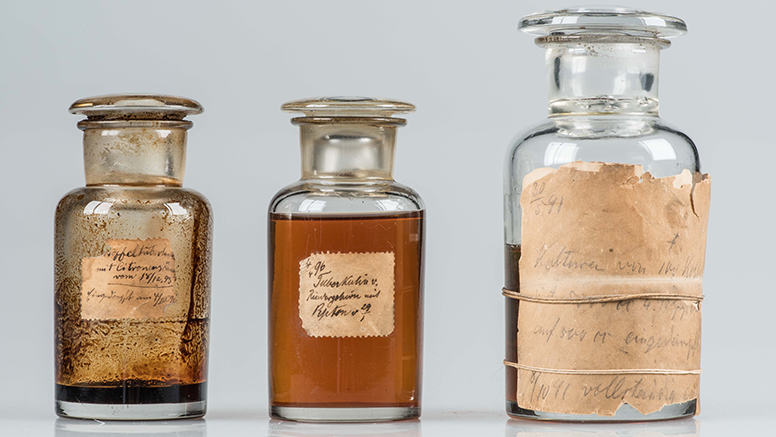 Tuberculosis then & now - A presentation from the museum
Tuberculosis then & now - A presentation from the museum
Click on the image to start the presentation.
In the reading room of the Physiological Institute in Berlin, Robert Koch announced on 24 March 1882 the discovery of the tuberculosis pathogen. The day on which the 38-year-old once gave his famous lecture is celebrated every year as World Tuberculosis Day.
Book and photo exhibition about Julius Morgenroth
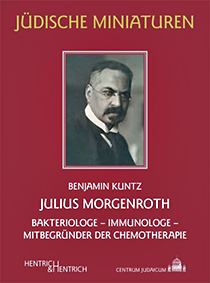
Jewish Miniatures - Julius Morgenroth.
Julius Morgenroth (1871-1924) achieved great achievements as a bacteriologist, immunologist and co-founder of antibacterial chemotherapy. As a student of Paul Ehrlich, he took over the management of the newly established department for chemotherapy at the RKI in 1919. Repeatedly nominated for the Nobel Prize, his early death at the age of 53 prevented him from receiving this award.
RKI medical historian Benjamin Kuntz has followed the life and work of Julius Morgenroth. The result is an exciting and richly illustrated biography. It was published in the book series “Jüdische Miniaturen”, published by Hentrich & Hentrich.
You can visit the photo exhibition on the life of Julius Morgenroth online here.
Antibiotic resistance and One Health

360-degree tour of the Antibiotic Resistance and One Health exhibition.
Antibiotic resistance in India, South Africa, Tanzania and Germany is the subject of a travelling exhibition by the Buko Pharma campaign, which is being presented digitally as a 360-degree tour at the Robert Koch Institute to mark Antibiotic Awareness Week. You can visit the exhibition online here.
Biography and photo exhibition on Lydia Rabinowitsch-Kempner
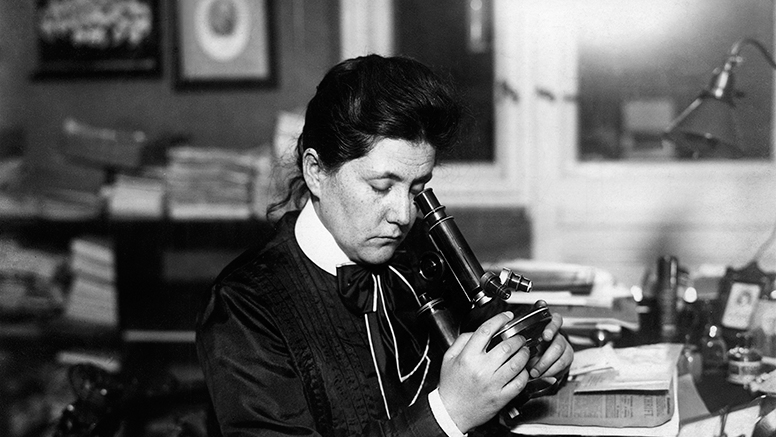 A photo exhibition on Lydia Rabinowitsch-Kempner
A photo exhibition on Lydia Rabinowitsch-Kempner
Lydia Rabinowitsch-Kempner at the microscope (around 1920). Click on the picture to start the presentation.
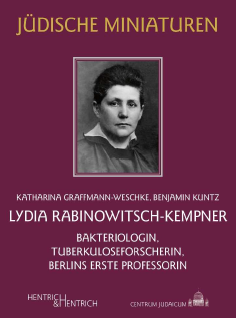
Jewish Miniatures - Lydia Rabinowitsch-Kempner.
A biography published in autumn 2022 is dedicated to the life and work of Lydia Rabinowitsch-Kempner. The bacteriologist was awarded the title of professor in 1912 for her achievements in the field of tuberculosis research - as the first woman in Berlin and the second woman ever in Germany.
Lydia Rabinowitsch-Kempner worked for Robert Koch at the Royal Prussian Institute for Infectious Diseases (today's RKI) from 1894. She researched and taught for a time in the USA and worked at the Institute of Pathology at the Charité from 1903 to 1919.
A ceremony was held at the Robert Koch Institute to mark the publication of the 300th JEWISH MINIATURE.
Lucie Adelsberger: RKI scientist, chronicler of Auschwitz
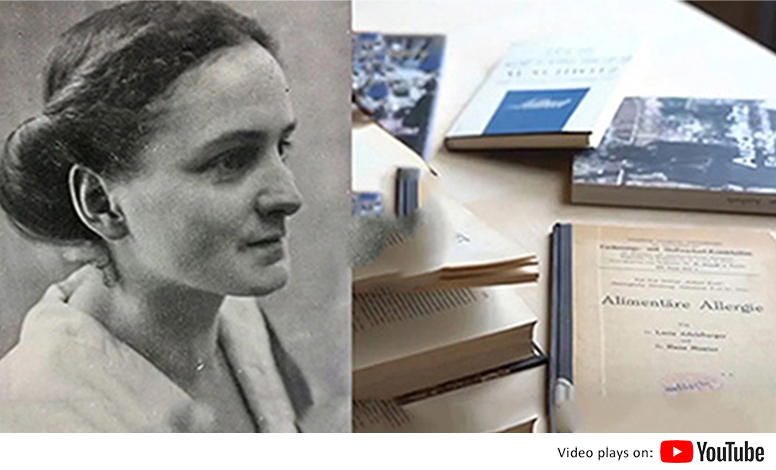 Lucie Adelsberger: RKI Wissenschaftlerin, Chronistin von Auschwitz.
Lucie Adelsberger: RKI Wissenschaftlerin, Chronistin von Auschwitz.
The trailer highlights the life of a woman whose memories of Auschwitz are a significant testimony to the Holocaust.
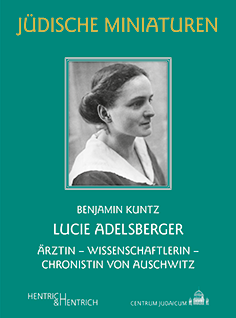
Jewish Miniatures - Lucie Adelsberger.
Lucie Adelsberger (1895-1971) was a specialist in paediatrics and internal medicine. She ran her own practice in Berlin, where she mainly treated patients with allergic diseases. Her scientific interest also focused on allergies.
From 1927 to 1933 she worked at the Robert Koch Institute in the newly founded Observatory for Hypersensitivity Reactions. After the National Socialists came to power, she continued to care for her patients - despite the withdrawal of her license to practice medicine. She turned down an offer from Harvard so as not to abandon her sick mother. In May 1943, she was deported to Auschwitz, where she had to work as a prisoner doctor in the "Gypsy and Women's Camp" in Birkenau. Shortly before the end of the war, she was liberated from a subcamp of the Ravensbrück concentration camp.
Emigration to the USA
Lucie Adelsberger emigrated to the USA in 1946. In New York she worked as a doctor and scientist in cancer research until her death.
